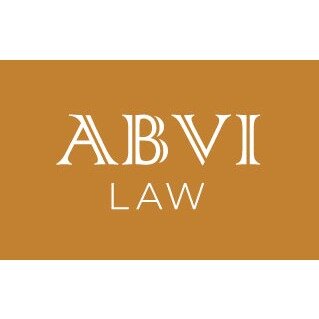Best ADR Mediation & Arbitration Lawyers in British Virgin Islands
Share your needs with us, get contacted by law firms.
Free. Takes 2 min.
Or refine your search by selecting a city:
List of the best lawyers in British Virgin Islands
About ADR Mediation & Arbitration Law in British Virgin Islands
Alternative Dispute Resolution (ADR) in the British Virgin Islands (BVI) primarily includes mediation and arbitration. ADR provides a means for resolving disputes outside the traditional court system. Mediation involves a neutral third party facilitating a negotiation process between disputing parties to reach a mutually acceptable agreement. Arbitration, on the other hand, involves a neutral third party acting as a private judge, making a decision on the dispute based on evidence and arguments presented. The BVI is a recognized international center for arbitration, supported by comprehensive legal frameworks and institutions that cater to complex commercial disputes.
Why You May Need a Lawyer
Seeking legal advice in ADR Mediation & Arbitration is crucial in several situations:
- Complex Disputes: When disputes involve intricate legal issues or significant financial stakes, professional legal assistance ensures proper representation and protection of your interests.
- Drafting and Reviewing Agreements: Lawyers assist in drafting mediation or arbitration agreements that clearly outline processes and protect your rights effectively.
- Navigating Local Laws: The BVI has specific laws and regulations that govern ADR activities. Legal experts help in ensuring compliance and understanding procedural intricacies.
- Representation in Proceedings: In arbitration, legal representation may be essential to prepare and present your case effectively before the arbitrator(s).
- Enforcing or Challenging Awards: Lawyers help enforce arbitration awards or challenge them if there are grounds of procedural misconduct or other legal violations.
Local Laws Overview
The British Virgin Islands has established a robust legal framework supporting ADR processes:
- Arbitration Act 2013: This is the key legislation governing arbitration procedures, aligning the BVI with international standards such as the UNCITRAL Model Law.
- Mediation Legislation: While there is no specific overarching mediation law, mediation forms a significant part of dispute resolution practices and can be incorporated into contractual agreements.
- Enforcement of Awards: The BVI Courts support the enforcement of both domestic and international arbitration awards, reinforcing the jurisdiction's stance as pro-arbitration.
- Role of the BVI International Arbitration Centre (BVI IAC): The BVI IAC provides facilities and services for arbitration and promotes BVI as a venue for resolving international disputes.
Frequently Asked Questions
1. What is the difference between mediation and arbitration?
Mediation is a facilitative process where a mediator helps parties negotiate a settlement. Arbitration is an adjudicative process where an arbitrator makes a binding decision after considering the evidence and arguments.
2. Can arbitration awards be appealed in the BVI?
Generally, arbitration awards are final and binding. However, under certain circumstances, such as procedural irregularities, they may be challenged in court.
3. Are ADR outcomes legally binding?
Arbitration awards are binding and enforceable in court. Mediation settlements become binding if the parties sign a settlement agreement.
4. How long does the arbitration process take?
The duration varies depending on the complexity of the case, but arbitration is typically faster than court litigation.
5. Do I need a lawyer for mediation?
While not legally required, having a lawyer can help protect your interests and provide clarity during mediation.
6. Can I choose the arbitrator or mediator?
Yes, parties typically have input in selecting arbitrators or mediators, often stipulated in the agreement or guided by institutional rules.
7. What happens if the parties cannot agree during mediation?
If mediation fails, parties may proceed to arbitration or litigation, depending on their agreement and preferences.
8. Is arbitration confidential in the BVI?
Yes, arbitration proceedings in the BVI are typically private and confidential, unless agreed otherwise by the parties.
9. What types of disputes are suitable for ADR?
ADR is ideal for commercial, contractual, and international disputes, particularly those requiring specialized expertise or confidentiality.
10. How do I start ADR proceedings in the BVI?
Initiating ADR begins with crafting an ADR clause in your contract or reaching a post-dispute agreement to pursue mediation or arbitration.
Additional Resources
For further information and assistance in ADR Mediation & Arbitration, consider consulting the following resources:
- BVI International Arbitration Centre (BVI IAC): Offers facilities, procedural guidance, and support for arbitration proceedings.
- BVI Bar Association: A resource for finding qualified legal professionals specializing in ADR in the BVI.
- BVI Financial Services Commission: Provides regulatory information and updates affecting dispute resolution processes.
Next Steps
If you require legal assistance with ADR Mediation & Arbitration in the British Virgin Islands, follow these steps:
- Consult Legal Professionals: Contact a lawyer specializing in ADR to discuss your specific needs and circumstances.
- Review Your Contracts: Ensure you understand any ADR clauses or agreements you are subject to and discuss these with your lawyer.
- Consider Institutional Support: Engage with institutions such as the BVI IAC for guidance and facilitation of the ADR process.
Legal expertise is crucial in navigating the complexities of ADR; proactive engagement with professional advisors will help safeguard your interests effectively.
Lawzana helps you find the best lawyers and law firms in British Virgin Islands through a curated and pre-screened list of qualified legal professionals. Our platform offers rankings and detailed profiles of attorneys and law firms, allowing you to compare based on practice areas, including ADR Mediation & Arbitration , experience, and client feedback.
Each profile includes a description of the firm's areas of practice, client reviews, team members and partners, year of establishment, spoken languages, office locations, contact information, social media presence, and any published articles or resources. Most firms on our platform speak English and are experienced in both local and international legal matters.
Get a quote from top-rated law firms in British Virgin Islands — quickly, securely, and without unnecessary hassle.
Disclaimer:
The information provided on this page is for general informational purposes only and does not constitute legal advice. While we strive to ensure the accuracy and relevance of the content, legal information may change over time, and interpretations of the law can vary. You should always consult with a qualified legal professional for advice specific to your situation.
We disclaim all liability for actions taken or not taken based on the content of this page. If you believe any information is incorrect or outdated, please contact us, and we will review and update it where appropriate.
Browse adr mediation & arbitration law firms by city in British Virgin Islands
Refine your search by selecting a city.










